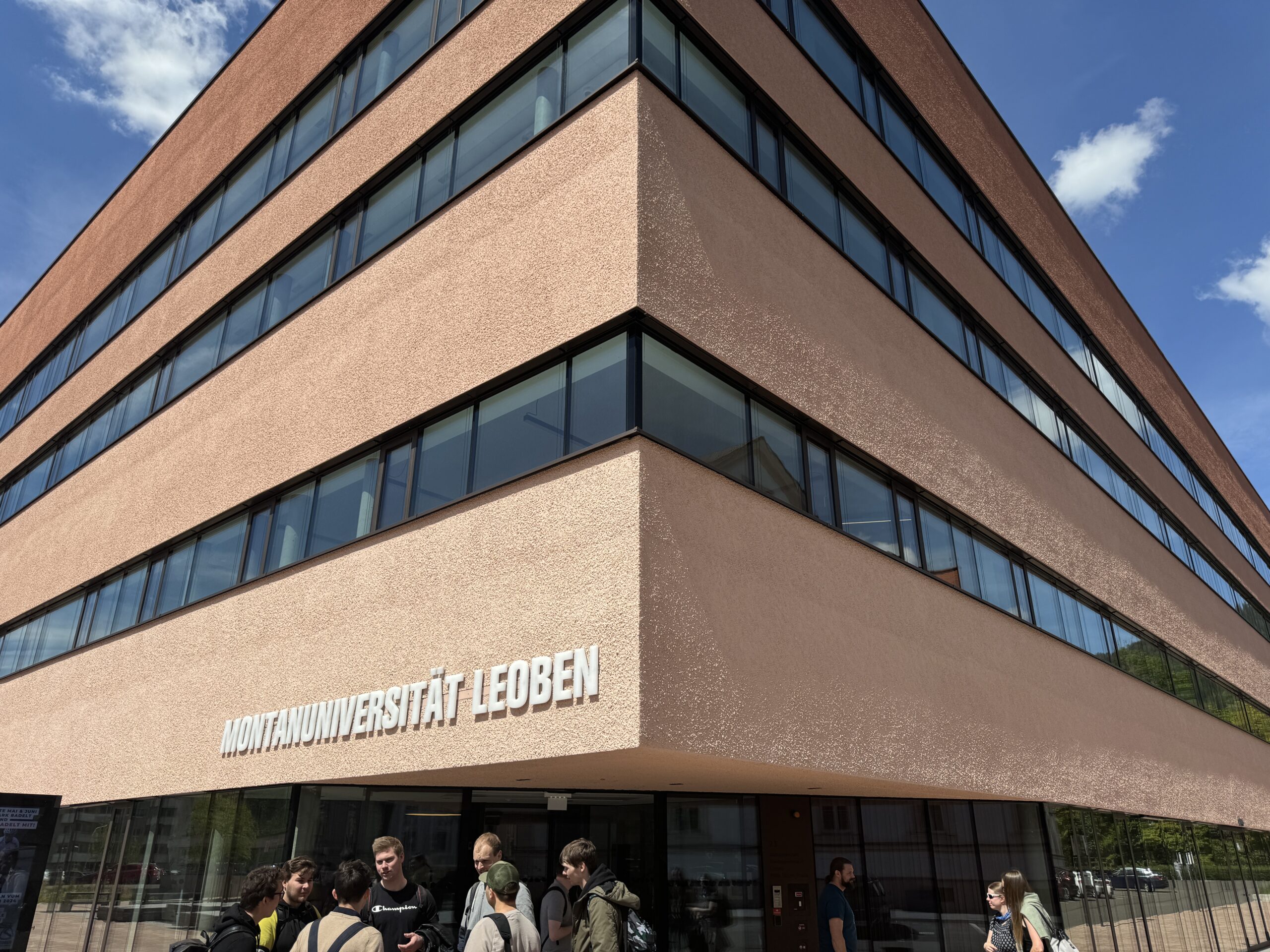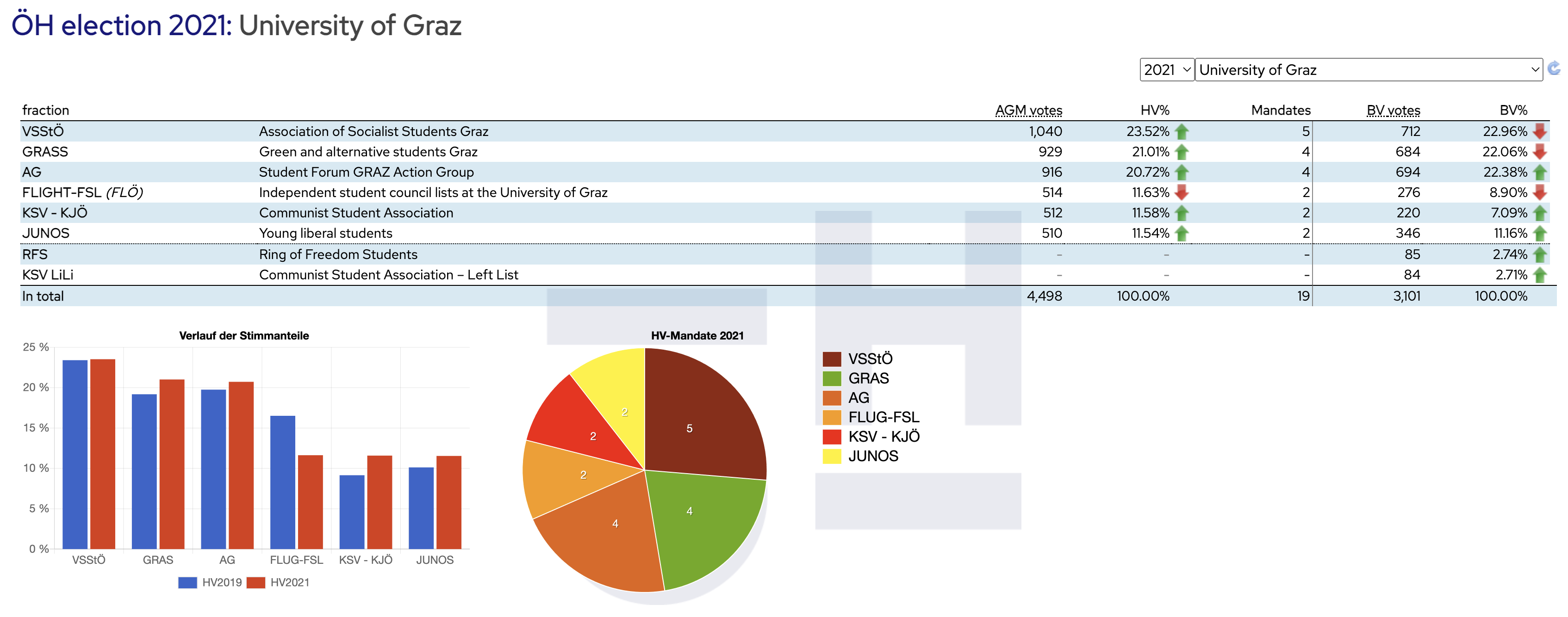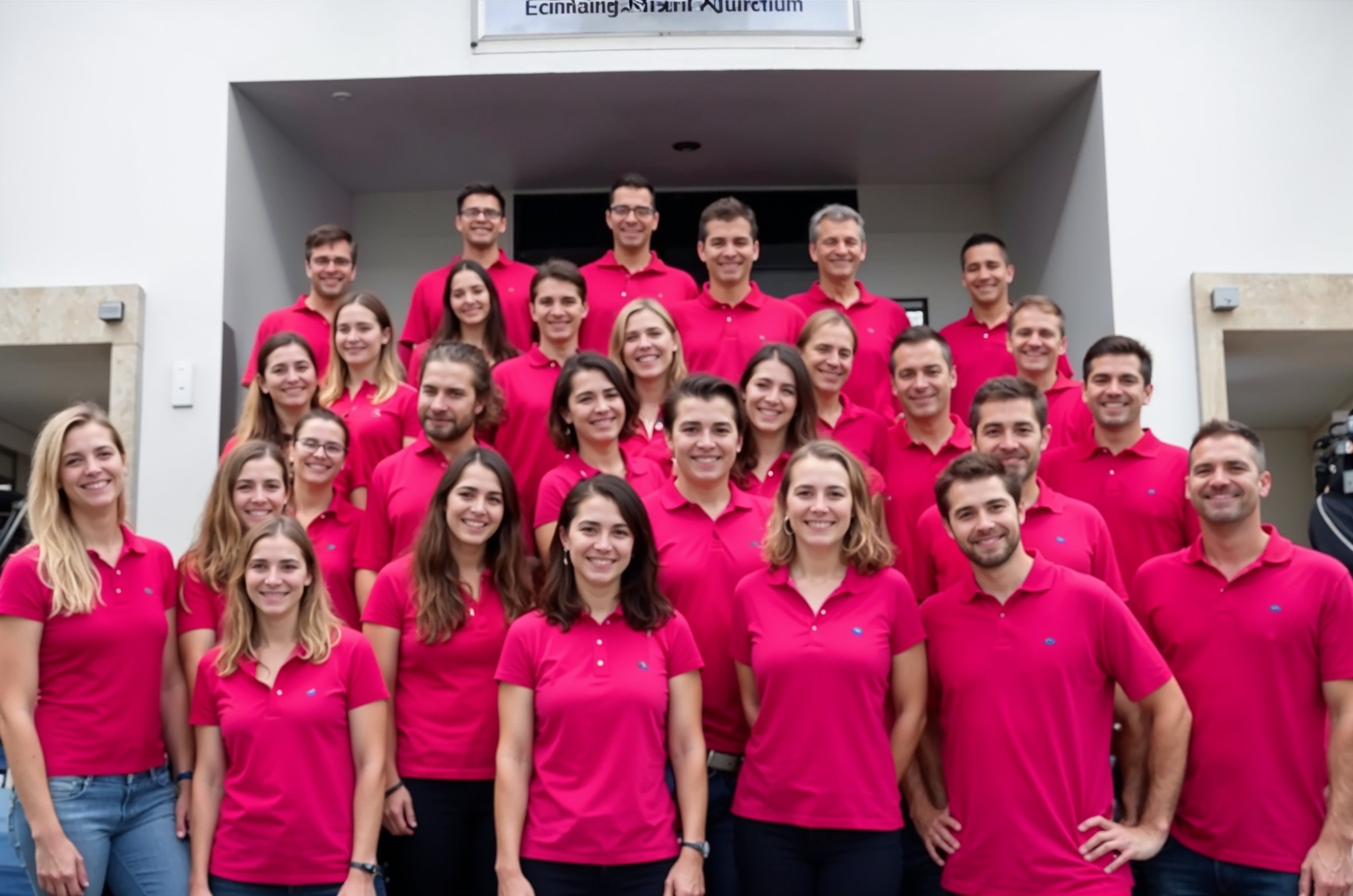We’ve slowly learned, over the study tour trips to European countries that we’ve been organising in recent years, to not take anything at face value.
As we file in, tired and in need of a toilet break, to yet another lecture theatre, we can pretty much guarantee that one of the slides is going to mention student representatives.
And that was the case at the University of Leoben’s Österreichische Hochschülerschaft (ÖH), where our hosts described student reps (three for each study programme) that could influence decisions about their experience – from curriculum to timetabling.
But just as a Raider doesn’t always have the same ingredients as a Twix, there was a distinct twist at Austria’s Mountain University.

Here student reps are very much responsible not just for communication and advocacy between students and professors, but for building connections and community between students.
Unlike the separate subject associations we’ve often seen in other parts of Europe, here the reps are grouped by programme and get a budget to both cause networks of students to emerge through events and activities, but also between students and employers and experts in their field.
Either way, the extent to which that level of student leadership remains patchy in the UK is interesting – and whether associative, or in this case federal, there’s lots to learn from systems that cause there to be leadership and power throughout the student body.
An absolutely massive election
It’s one of the fascinating things we’ve come across on Day 3 of our Wonkhe SUs spring study tour to the Balkans and Austria, where student leaders and SU staff are on a bus tour of students’ unions, guilds, associations and reps, seeing what we can learn from our European cousins.
Earlier at the University of Graz and TU Graz (the city’s main technical university), we’d been given a crash course into the Austrian (and very federal) way of doing students’ unions.
Here tuition fees are minimal (and free as long as long as you’re progressing), but one thing that students do have to pay is the ÖH fee.
That then funds the national union, local SUs and their projects, and subject and faculty based “representation” – without the annual dance about block grant getting in the way of doing good things for students.
Elections here (every two years) are huge. There’s no cross campus ballots for super celeb sabbs – instead a massive multi level nationwide election in May sees student parties (some that are associated with political parties, some that are not) battle it out for votes on (one for nerds here) a D’Hondt party list system.

It’s fascinating because that causes both political parties to consider youth and student issues at quite a detailed level, and offers a genuine debate about students and the student experience to go alongside the “popularity contest” aspects of elections.
Once elected- nationally and locally, coalition talks then take place to determine the forward programme – which issues and projects to focus on, and which members of the assembly and council will go on to form the Presidency and any Heads of Department that will take office.
And very few of the office holders are full-time. In a system that supports students to take their time to complete 180 credits of a bachelors degree (students can reduce study intensity both for voluntary work and for personal/health reasons, so tend to graduate later than in the UK), students can pick up both ECTS credits for holding office (including at the course level) and a small amount of pay.
Add all of that up and student leadership tends to be much wider distributed here – and the leadership bodies that form around programmes are spotting gaps, issues and wins rather than a stressed out rep coordinator with a spreadsheet.
A different kind of department
At the central university level, the so-called departments of the ÖH – wohse leaders get drawn from the assembly – then handle specific portfolios that mean activity is happening in those areas regardless of who wins their elections.
The Department for Economic Affairs looks after project funding. The Department for Educational Policy does what you think it does – but with a particular focus on supporting departmental reps to support students to navigate the complexity of the university.
The Social Department gives out federal money allocated to particular groups of student in need, the Department for Work and First Generation Students helps students find jobs, navigate the tax system and ensure those without a family background in HE thrive, and the International Department does much of what we’d see an International Office do in the UK, only without the “we’re also an agent of UKVI” threat lingering in the air.

The SU’s own disability department never lets up on advocacy for both individual and strategic, anticipatory adjustments, the Cultural Department handles film, theatre, art exhibitions and literature, and the Feminist Politics Department both has a library, workshops, meetings, and lectures, and provides advice and support in cases of discrimination and sexual harassment – as well as promoting family-friendly policies at the university and actively campaigning against sexual harassment and discrimination.
We could go on – but the point is that with a small budget and a consistency in the structure, it means that both defined issues and groups of students can build their departmental culture and programme every year – avoiding the “Year 0” that we often find in the UK when the first sabb team in ten years decides to do work on, say, harassment.
And it means that the SU’s websites are full of photos of teams of students – a sense that everyone can be involved rather than a select few.
Rites and rights
Back at Leoben, belonging and community came up a lot – built not only through the reps (and, as is present in pretty much every country in Europe except the UK, another form of student social mentoring/tutoring) but also through customs, rituals and events.
The academic “Ledersprung” is THE couleur student event of the academic year in Leoben. It’s a traditional rite of passage event – into both the mining profession (or its “related” professions) and the university itself, with every student (in the presence of the rector/VC) explaining who they are and their motto. It’s an event known far beyond Leoben’s borders and attracts visitors to the beautiful mining town every year.
At the end of each academic year the “Bierauszug” was originally held because students used to work in the mine – and as many died doing so, the idea was to celebrate their achievements in case they didn’t return. Today there’s a band, Leoben corporation chargers, and a horse-drawn brewery carriage – and they proceed to the university’s old portal, where the rector and professors greet them, leading to speeches and the singing of “Vivat Academia.” The event concludes at Massenburg Castle with more singing and celebration.

Then for graduation, students transition into “Old Lords,” a status also known as philistinism, marked by a ceremonial philistration. The event begins with a procession featuring corporates in gala uniforms, followed by a horse-drawn carriage carrying the philistine and beer crates. Torch-bearing siblings, friends, and family members also join in – and seated on the shoulders of two close individuals, each philistine is humorously pushed against a shield decorated with coats of arms for each semester studied, while the assembly playfully miscounts.
The detail doesn’t matter here as much as what the events (many of which we’ve seen versions of in other cities) represent – large scale events, run by students, often with strong local links to the locality that celebrate or showcase students’ achievements and spirit. Everyone loves a graduation – why do we only celebrate like that in the UK when it’s all over?
More tomorrow, when we’ll be concluding our trip in Vienna.
———–
On the high feast of Barbara, good luck! all you miners!
Greetings from far and near with joyful loud sounds.
The sound of hammers rang out from the mine, the pits were filling up,
the ore was rising up from the shaft, hour by hour.
Many a corridor was silvered and was rich in ores;
Where we didn’t succeed, the miner has to hope.
So live whoever wears the coat and our shiny leather,
whoever hits the iron with his fist, also all of them from the pen.
Continue to help us “Saint Barbara” as you have in previous years,
then in your praise we will still be brought in as often.
Good luck!






















